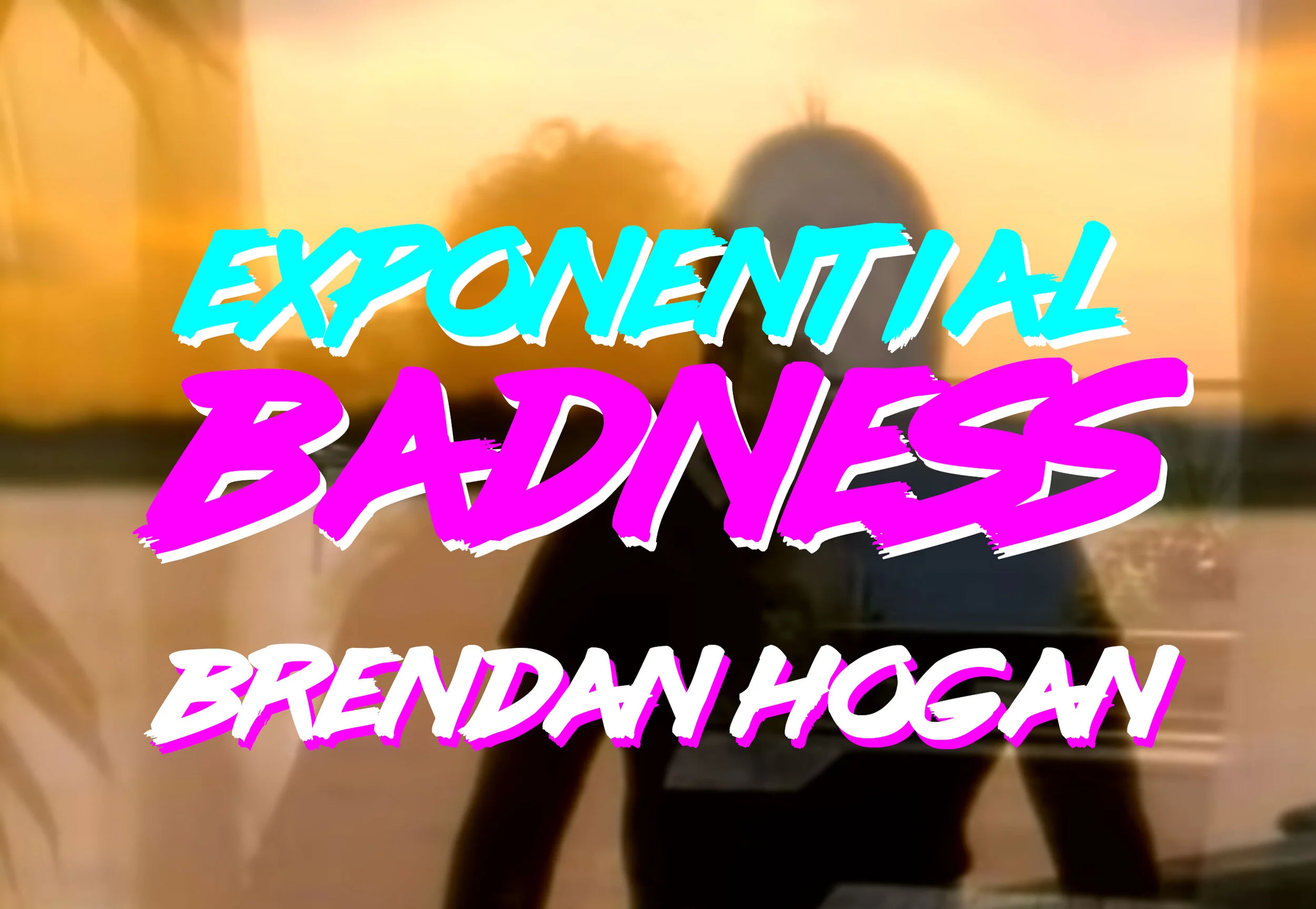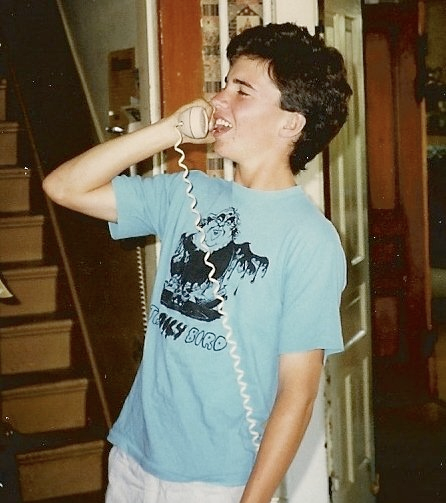brendan hogan on will to power’s “baby i love your way / freebird medley (free baby)”
I.
Bellingham High School, located in the remote northwest corner of the continental United States, was built to resemble a factory replete with a smokestack rising up over the center of the peach-pink colored structure. It’s just as well, it housed the kids from the working-class side of town, and in the 1980s, a majority of the 288 or so kids graduating in the year following the release of the abomination that is the subject of this essay would not be going to college but rather getting a job. We still had Georgia-Pacific, the Intalco refinery, commercial fishing, and logging to employ us in the county at our tender age of 18. KPLS 101.5FM (pronounced K-Plus) Seattle was a go-to station for pop at the time and those who sided more with the ‘wavers’ found a kind of home there, as radio stations still had a kind of social currency and solidarity-creating power that has since evaporated. This station and their emo followers, dressing as they did in their John Hughes-inspired wardrobes, stood opposed to the ‘jocks’ who seemed to have formed a cult to AC/DC. They spent their what seems now to be rather copious energies in the locker rooms and halls of BHS trying to eliminate the fuzziness of reception in dialing in ‘Seattle’s Best Rock’—KISW 100 FM on what was at that time referred to as a ‘ghetto blaster’. Our ‘mascot’ was a Native American Indian chief, and we were called the Red Raiders without a thought to the racism therein. It was a Cold War world, still, and in spite of the previous eight years of union-busting the working class still had its political habits as Dukakis beat Bush, Sr. in our school-wide election that fall.
It is in this small corner of Reagan’s American nightmare, at this particular historical juncture, that the “Baby, I love Your Way / Freebird Medley (Free Baby)" materialized as the zenith/nadir of badness. Notice first, how could you not, the completely superfluous parenthetical panache in the title. To the straightforward combination of the two pre-existing titles is added “(Free Baby)”. Also notice the indecidability of its meaning. Therein lies our hermeneutical lodestone. This is not mere combination, no mere resultant sum of two distinct entities added to each other. Rather—and this is the first moment of interpretive meta-thrust supplying the case for “exponential badness” being made here—it is something entirely new, beyond the duet, it is a medley with lovers uncaged, emancipated. Or is it offspring on the cheap? [1] It is an alchemy that would make Paracelsus blush. But already, I run ahead of myself into ontological perplexities.
Let us restrain ourselves to the domain of popular culture at that time and recall its high priest of philosophy for everyman (woman, persxn), Jack Handey. Almost lost to us now, Handey purveyed ‘Deep Thoughts’ to the many almost weekly on Saturday Night Live. Here’s a taste.
And now consider this koan from the Handey archive:
If you ever fall off the Sears Tower,
just go real limp, because maybe
you’ll look like a dummy and people
will try to catch you because, hey, free dummy.
Though it outstrips any speculative resources immanent to the new shape of World Spirit we inhabit, I hazard that this quote of Mr. Handey’s captures and is a not-too-distant mirror of the entire creative logic behind the production of this “Baby I love your way…etc”. But history will be the judge of such bold hypotheses. So I leave the potential significance of this simultaneous emergence of free baby/dummy hanging in the empty air, as it were.
II.
The ‘work’ combines two rock songs from a previous decade into a ballad whose instrumental vehicle is a tweaked electric piano paired with electronic drums. The achievement of this combination is complex, but the overall result is to produce what I consider to be the worst song ever to grace the #1 position of the Billboard Top 100. This is the worst song ever—thus outstripping the temporal parameters of this tournament. [The Selection Committee notes that this song was on the long list for March Badness and thus was in fact eligible for the tournament, if only one of the 64 writers had selected it. —Ed]
I mean to say that “Baby, I love your way / Freebird (Free Baby)” is a kind of exponential assault in its very structure.
First, Peter Frampton’s ‘Baby, I love your way’ had managed to almost fade into well-deserved extinction by 1988. In fact, the only Frampton song in any radio rotation in the region was the live version of ‘Do you feel like we do’, wherein Frampton enlists a talkbox sound effect in his mouth to make things even groovier. The result of that effort throws into relief the secret genealogy belying the claim that Cher was the first artist to autotune their voice in her 1998 single, “Believe”. ‘Do you feel like we do’ is equally as annoying (not least because there is no question mark in the title), but even more vacuous than Cher’s ‘breakthrough’. A taste:
My friend got busted, just the other day
They said, "don't walk, don't walk, don't walk away"
Drove him to a taxi, bent the boot, hit the bag
Had to play some music, otherwise he'd just crashDo you, you, feel like I do? (how'd ya feel?)
Do you, you, feel like I
Do you, you, feel like I do?
But ‘Baby, I love your way’ (strangely correctly punctuated) tops this in its sheer emptiness, an emptiness that boldly challenges the human capacity for inference by moving from the beginning of this stanza:
Moon appears to shine and light the sky
With the help of some fireflies
I wonder how they have the power shine shine shine
I can see them under the pines
To the immediately following conclusion to the stanza:
But don't hesitate 'cause your love won't wait hey
Ooh baby, I love your way every day
Want to tell you I love your way every day
Want to be with you night and day uh yeah
Here emerges a mysterium tremendum, a terrible mystery comparable to that in the face of which Rudolf Otto [2] claimed lie the beginning of all religion. For the listener is asked to link the situation where the moon ‘appears to light and shine in the sky’ (could it be a Copernican aside? Frampton’s subtle confession to being one who dabbles in astronomy and is therefore well aware as to the source of the moon’s light? But no, it couldn’t be, as the causal agent producing the shine is partially attributed to fireflies) with the injunction to ‘make haste, lover!’
III.
“Baby, I love your way” is a very bad song. It is something of an achievement, then, to find a way to make it worse.
But herein lies the challenge for this author. This is because including ‘Free Bird’ in the composite might, at first face, seemingly stem the tide of the song’s slide into aesthetic oblivion and outright violence. Lynyrd Skynyrd ‘s tune from 1974 regularly registered in the top three with ‘Stairway to Heaven’ and ‘Hey Jude’ on the Top 1000 countdown carried out on the aforementioned KISW at the turn of each New Year.
It is here that I find the second moment of what I am claiming as a kind of ‘exponential’ badness.
It is one thing to cover a bad song, it is quite another to cover that song and combine it into a medley with what is a great rock song and in the process turn that great rock song with fairly incredible musicianship into a muzak supplement to the first genuinely horrible song. The resulting disfigurement? A slow-dance tune for high schoolers buzzed on Sun Country wine coolers at an after-game dance in BHS gymnasium circa 1988. Synthesizing the bad, (or should I say ‘evil’?), with the good does not musically equalize the overall quality of the song, but instead redounds to amplify just how bad it is. It is as Plato suggested in Book VI of the Republic with respect to capacities like cleverness and quick-wittedness. There he remarks that having a mere talent without knowledge of the Good is a very dangerous thing, because with evil motives the very smart or clever person is much worse and capable of far more monstrous acts than the dull or dim-witted person. This even if their motives be identical. Free Bird’s role in this song avails itself of just such an interpretation. It actually makes the song much worse than if an equally bad song had been matched with Frampton’s offering. (The resurrection of the latter’s tune giving a kind of Frankensteinian overtone to ‘Frampton Comes Alive’.)
But who would do this, who would be this diabolical, to select a modern classic and harness it for cultural dreck that lowers the quality of life to all those who listen to it. It is here, dear reader, I beg for your patience for at this point, you may be asking:
‘What about the actual song? Where is the analysis of the tune, the structure, the interplay of the instrumentation with emphasis on the spirit-killing full-throated banalities belted repeatedly in a harrowing chorus? It is my argument that the badness of this song is actually made worse in the listening by knowing the cultural location of this particular medley. In fact, a strong case can be made that the song serves as an unassailable proof of nihilism, that our modern condition is in fact meaningless. Its existence is proof.
IV.
Did I mention nihilism? Well, I meant to, and here I beg your further patience in continuing this meta-account of the badness of this song. Such abstract considerations are essential for your listening displeasure, I believe, and actually makes the sonic encounter even worse to know that the band’s name is ‘Will to Power’. ‘Coincidence’, you say? ‘A typically 80s Geckoesque cocaine-fueled creative license combined with the social Darwinism Reagan and Thatcher had unleashed in a large part of the world’, you surmise? Is it mere chance that the band itself bears the identical title of a controversial work of our most prominent critic of the nihilism of the modern age, after he himself served as a corrosive agent to the most cherished tenets of metaphysics, epistemology, and ethics?
No, no it is not.
I submit for your viewing agony the video that accompanied this chart-topping engine of human decentration:
Notice, that a copy of Walter Kaufman’s English translation of Nietzsche’s Will to Power slides across the screen in the opening scene of the ‘musicians’ hard at work in the studio.
(I mean, what studio have you been in that doesn’t have the collected works of Nietzsche lying around?:
‘Kathy says you ate my sandwich while I went out for a smoke, Steve. Is this true?
‘What is truth, Adam, but a mobile army of metaphors…’)
The book then reappears on a table in the home of the female vocalist, as she begins her transformation of sheer affirmation of love by firefly-lit-moon in the Frampton original, into lament and longing for the departing bird (but, ‘hey, free baby’ ? The interpretive question remains).
In the song itself, well, the counterpoised ballads are interpellated into the masculine and feminine voices, with the feminine longing of the love of baby’s way hauntingly accentuated by an echo effect. The freedom of the bird is an expression of masculinity, as it was in the original, only now sensitively whisper-sung by an individual who paradoxically agreed to name the band , ‘Will to Power’. The video perfectly distills masculinity in moustache, mullet, and motorcycle as the non-quiche eating ubermensch rides off, wait for it… into the sunset.
As an expression of its time, this mélange of text, musical medley, and video is a complete—a synthetic—work of art that another fin-de-siecle genius, Kandinsky, could only dream of accomplishing.
But these rarefied reflections, written in a turgid philosophical prose, may have strained your forebearance. Encounter the video, dear reader, and ask yourself what defenses you would have arranged in such a terrible undertaking as this—to not only point out the abominable, but to sit with it long enough to relay it to another.
[1] It is here that I muster and display the greater part of valor in restraining myself from a Hegelian analysis in which dialectically contradictory opposites are brought into a higher determination through their mutual negation. However, any similarities to a Left-Hegelian methodology will be eviscerated by a later appearance of a different-tempered sage of the 19th century.
[2] In case the works of Rudolf Otto don’t happen to be open on your desk having coffee spilled upon them at this moment, here’s a refresher: https://en.wikipedia.org/wiki/Rudolf_Otto
Brendan Hogan is a philosopher. He has published in the Graduate Faculty Philosophy Journal, Journal of Speculative Philosophy, Human Studies, and various collections on topics surrounding politics, the social sciences, and pragmatism. Like almost everyone else he once gave a Ted talk. His is about happiness, death, and advertising. He is Clinical Associate Professor in Global Liberal Studies at NYU. On twitter: @Brendanjh


